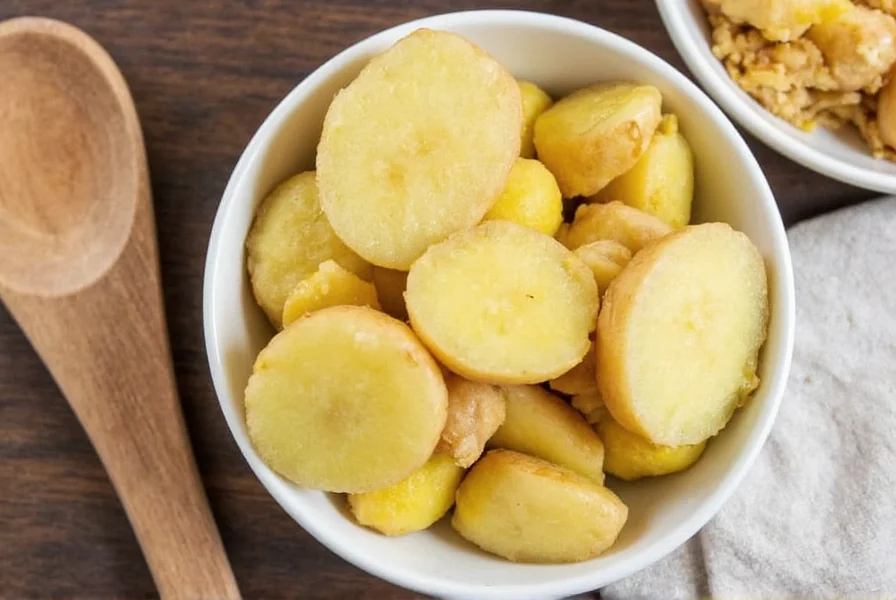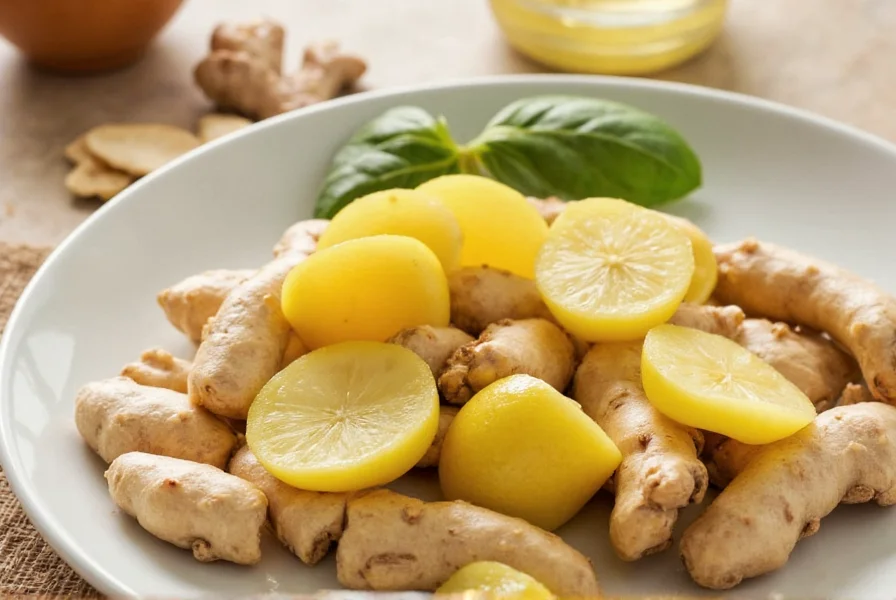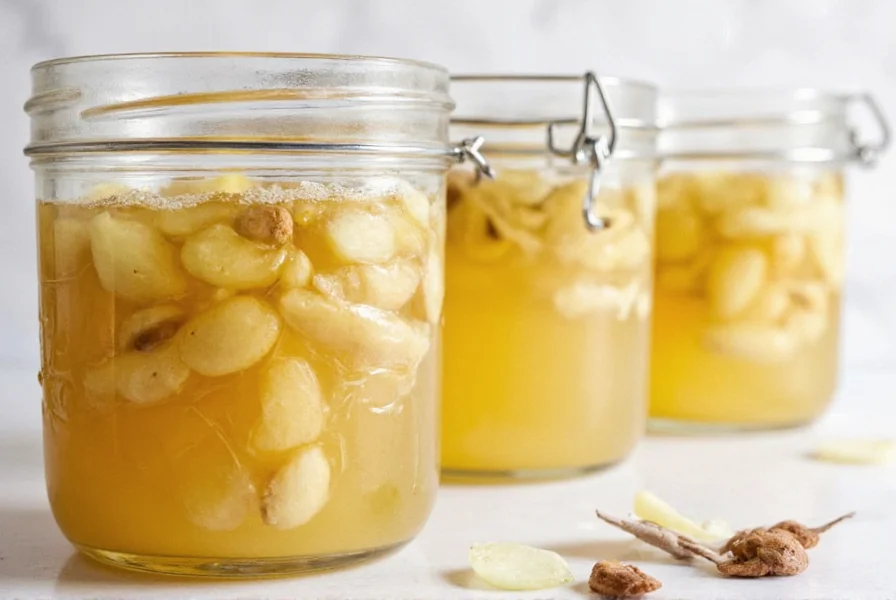Fermented ginger has gained significant attention in health-conscious communities for its unique properties that differ from regular fresh ginger. This traditional preservation method transforms ginger's nutritional profile while maintaining its therapeutic compounds. Unlike pickled ginger which uses vinegar, true fermented ginger relies on natural lacto-fermentation that produces beneficial bacteria.
What Exactly Is Fermented Ginger?
Fermented ginger refers to ginger root that has undergone lacto-fermentation, a process where natural sugars in the ginger interact with salt and beneficial bacteria to create lactic acid. This ancient preservation technique dates back centuries in Asian and Eastern European culinary traditions. The fermentation process typically takes 7-14 days at room temperature before refrigeration slows further fermentation.
During fermentation, gingerol (the primary bioactive compound in fresh ginger) partially converts to shogaol, which has higher antioxidant activity according to research published in the Journal of Agricultural and Food Chemistry. This biochemical transformation enhances certain health properties while creating new beneficial compounds.

The Science Behind Ginger Fermentation
Lacto-fermentation works through microbial activity where Lactobacillus bacteria convert natural sugars into lactic acid. This process:
- Lowers pH creating an environment hostile to harmful bacteria
- Preserves ginger's nutritional content longer than fresh storage
- Increases bioavailability of active compounds
- Generates beneficial enzymes and probiotics
A 2020 study in Food Microbiology demonstrated that properly fermented ginger maintains 92% of its original gingerol content after 30 days, compared to fresh ginger which loses approximately 40% of gingerol within the same timeframe when refrigerated. The fermentation process also creates new compounds like paradols with demonstrated anti-inflammatory effects.
Health Benefits: Evidence-Based Analysis
While traditional medicine has long valued ginger, modern research provides insight into how fermentation affects its therapeutic properties:
| Benefit | Scientific Evidence | Fermented vs Regular Ginger |
|---|---|---|
| Digestive Health | Multiple studies show ginger reduces nausea; fermentation adds probiotics that enhance gut microbiome | Fermented provides dual action: ginger compounds + live probiotics |
| Anti-inflammatory Effects | Research confirms ginger's anti-inflammatory properties; fermented version shows higher shogaol content | Up to 30% higher bioactive compounds in properly fermented ginger |
| Immune Support | Ginger has immunomodulatory effects; fermentation creates additional immune-supportive compounds | Probiotic content provides additional immune benefits |
It's important to note that while fermented ginger shows promise for digestive health support, it should not replace medical treatment for serious gastrointestinal conditions. The probiotic content varies significantly based on fermentation methods and cannot be standardized like commercial probiotic supplements.
How to Make Fermented Ginger at Home
Creating fermented ginger requires minimal equipment and ingredients. This simple method produces authentic fermented ginger without vinegar or artificial preservatives:
- Peel and thinly slice 1 cup of fresh ginger root
- Place in clean glass jar with 1 teaspoon non-iodized salt
- Add filtered water to cover ginger, leaving 1-inch headspace
- Optionally add 1 tablespoon whey or starter culture
- Cover with breathable cloth and secure with rubber band
- Ferment at room temperature (68-75°F) for 7-10 days
- Transfer to refrigerator after bubbles appear consistently
Properly fermented ginger should have a pleasantly tangy aroma and slightly effervescent quality. Discard if mold appears on the surface or if it develops an unpleasant odor. The finished product typically remains viable for 2-3 months when refrigerated.

Practical Uses and Consumption Guidelines
Fermented ginger offers versatile culinary applications beyond traditional uses:
- Add 1-2 slices to morning tea for digestive support
- Include in salad dressings for probiotic boost
- Use as condiment with fish or poultry dishes
- Incorporate into smoothies for gut health benefits
- Add to stir-fries during last cooking minutes to preserve probiotics
For digestive support, nutritionists typically recommend consuming 1-2 tablespoons of fermented ginger before meals. Those new to fermented foods should start with smaller amounts (1 teaspoon) to assess tolerance. The probiotic content means effects may vary between batches depending on fermentation conditions.
Safety Considerations and Potential Interactions
Fermented ginger is generally safe for most people when consumed in culinary amounts. However, certain individuals should exercise caution:
- People taking blood thinners should consult physicians due to ginger's natural anticoagulant properties
- Those with gallstone issues may experience increased bile production
- Individuals with low blood pressure should monitor for potential additive effects
- People with histamine sensitivity may react to fermented products
Pregnant women should limit consumption to culinary amounts (1 tablespoon daily) as high ginger intake may affect hormone levels. Always consult healthcare providers before using fermented ginger therapeutically if managing chronic health conditions.











 浙公网安备
33010002000092号
浙公网安备
33010002000092号 浙B2-20120091-4
浙B2-20120091-4